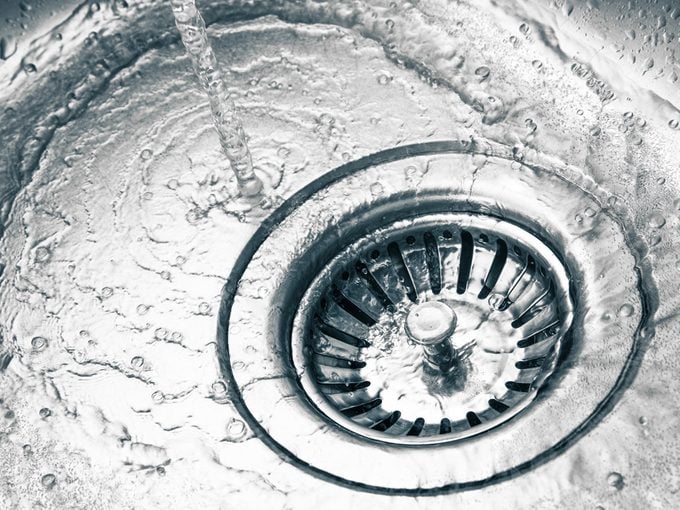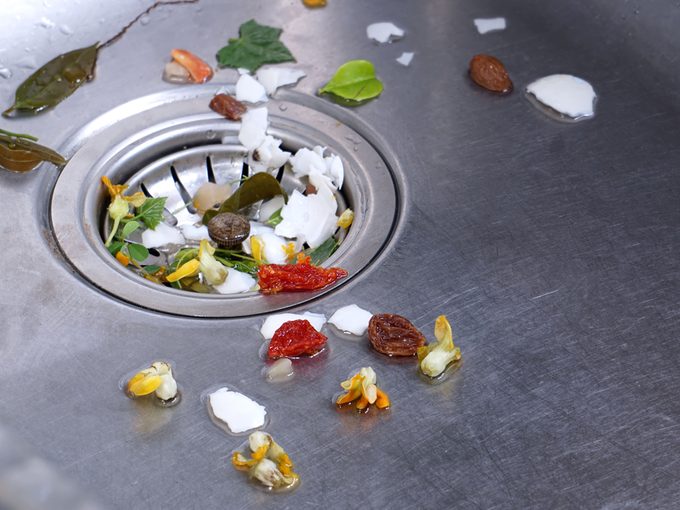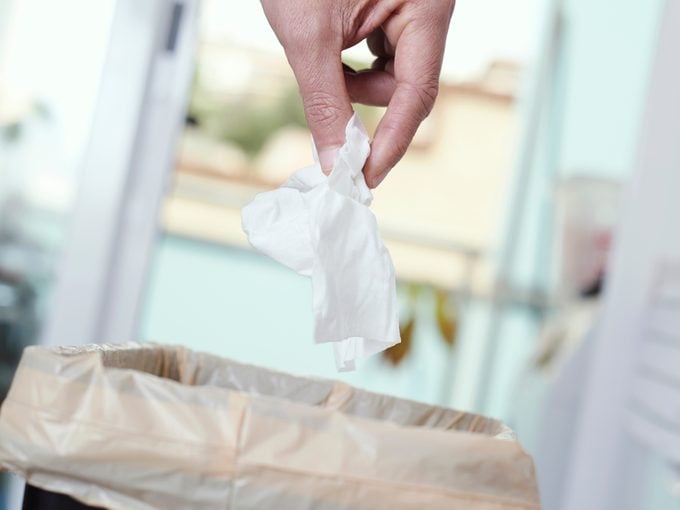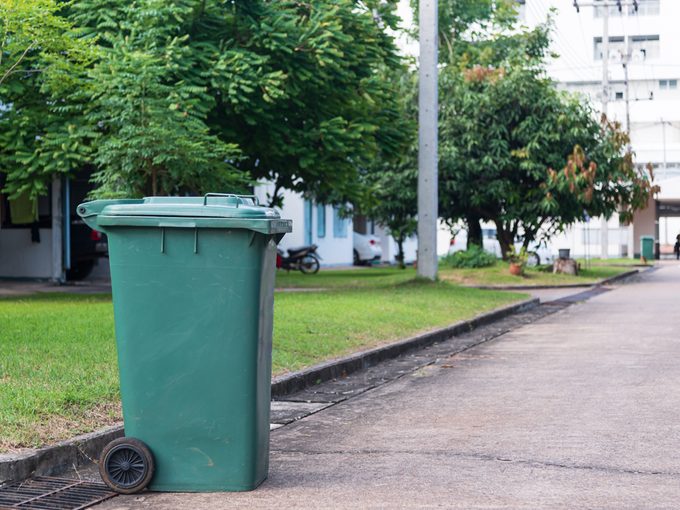6 Items That Should Never Go Down the Drain
This holiday season, protect the environment and keep your home’s plumbing free of clogs.

In Canada, the last months of the year are punctuated with festive gatherings—from Thanksgiving and Halloween to Diwali and Christmas. That means more parties, more food and more opportunities for clogged pipes. Some harmful substances can impact infrastructure and even drain into our lakes, rivers and streams, damaging the environment and local aquatic life. That’s why it’s important to watch what you pour down your sink or flush down your toilet.
But do you know how to properly dispose of everyday items like grease and wipes?
Follow this City of Toronto guide when you’re tidying up, cooking for a large group or prepping before party time to help prevent costly blockages and basement flooding, all while protecting local waterways.
1. Fat, oil and grease
No matter what you cook throughout the holidays—whether it’s a juicy turkey with rich gravy or a simple salad with dressing—you’ll be using cooking oils, butter, margarine, shortening or lard. But rinsing these fats down the drain is a big no-no. Even though they may appear liquid when hot, they’ll harden as they cool, which can cause build-up that leads to blockages in your home’s pipes and the City’s sewer system. Beware of fat found in meats, bacon drippings, salad dressing, gravy, milk, cream, soups and sandwich spreads.
What to do instead: Collect the grease and allow it to harden (or saturate a paper towel with the oils) and toss it in your green bin. If you have large amounts of cooking oil take it to a Drop-Off Depot or Community Environment Day. For commercial businesses, like a restaurant, it is mandatory to install a grease trap.
2. Food scraps
Avoid washing bits of food down the drain when you’re rinsing out casserole dishes or washing up your pots and pans.
What to do instead: Use a strainer in your sink to catch scraps and place them in your green bin.

3. Cleaning products
When guests arrive to socialize or enjoy a homecooked meal, you want your space to be spick and span. But tidying up can produce waste that or is harmful to people and animals. Any liquid, gel or powder cleaners, bleaches or disinfectants that have warning labels like “corrosive,” “flammable,” “explosive” or “poisonous” do not belong down the drain.
What to do instead: Bring household hazardous waste to a Drop-Off Depot, Community Environment Day or other appropriate disposal site. And if you witness a hazardous spill, either in the environment or down your own drain, call 311 immediately.
4. Facial tissues, paper towels and wipes
Certain paper products and wipes that say “flushable” or “biodegradable” should stay out of the toilet, as they can cause time-consuming clogs.
What to do instead: Put facial tissues and paper towels in your green bin. Wipes of any kind should go in the garbage.

5. Personal hygiene items
Even small, seemingly inconspicuous products like dental floss shouldn’t be flushed down the toilet.
What to do instead: All face and baby wipes should go in the garbage, as should cotton swabs, dental floss, condoms and plastic tampon applicators and wrappings. Tampons and sanitary pads can go in the green bin. Grooming products like nail polish, nail polish remover, alcohol-based perfumes and aftershaves as well as non-empty aerosol cans are considered household hazardous waste and should be disposed of as such.

6. Medications
What to do when you have a headache at the end of the night, but realize your painkillers have expired? Certainly don’t flush them down the toilet! No matter what form your medication comes in, whether that’s pills or liquids, it doesn’t belong in the sewer where it can harm the environment.
What to do instead: Return medications to your local pharmacy. They’ll dispose of them in a safe manner.
For more information and to see what to do with oils, fats and items like motor oil, paint, pesticides, medications and hygiene products, visit toronto.ca/notdownthedrain.




